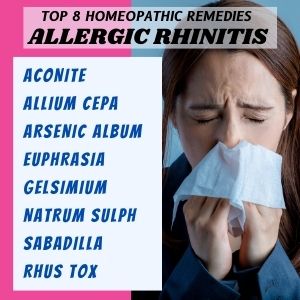Allergic Rhinitis is a condition caused by an allergic reaction to substances like pollen, dust, mold, or pet dander. It occurs when the immune system overreacts to these allergens, producing antibodies that trigger the release of chemicals like histamine. These chemicals cause inflammation in the mucous membranes, leading to symptoms such as sneezing, itchy eyes, and a runny nose. The reaction can range from mild discomfort to severe inflammation, affecting daily life and well-being.
A common form of allergic rhinitis is Hay Fever, where symptoms arise due to airborne allergens like pollen. These allergens can irritate the nasal passages and sinuses, leading to a cascade of symptoms such as congestion, a sore throat, and postnasal drip, which often results in coughing.
Allergic rhinitis occurs when the body’s immune system becomes sensitive to common allergens. These triggers include:
When an allergic person is exposed to these allergens, their immune system mistakenly identifies them as harmful, leading to an inflammatory response.
Common symptoms include:
People with allergic rhinitis often experience congestion and difficulty breathing, particularly when exposed to airborne allergens like pollen or dust.
Standard treatments for allergic rhinitis usually include:
However, these treatments often provide only temporary relief and may have side effects.

Homeopathy offers a more holistic approach to treating allergic rhinitis by focusing on the body’s immune response and helping it naturally combat allergens. Some of the top homeopathic remedies for allergic rhinitis include:
These homeopathic medicines are tailored to the individual’s symptoms, helping the body regain balance and reduce the allergic response.
At HomoeoCARE, we believe that allergic rhinitis is often linked to an overactive immune system. In individuals with a weakened immune system, even mild allergens can trigger exaggerated reactions. Homeopathic treatment aims to strengthen the immune system and reduce the body’s hypersensitivity to allergens, thereby reducing the severity and frequency of allergic reactions.
Our experienced homeopathic doctors across locations such as Vashi, Goregaon, and Bhandup in Mumbai, India, provide personalized care to build a strong immune response. This helps the body naturally defend against infections and allergens, offering long-term relief without reliance on synthetic medications.
By improving the body’s natural ability to fight off allergens, homeopathic treatment for allergic rhinitis not only addresses immediate symptoms but also promotes overall wellness and resilience to environmental triggers.
Allergic rhinitis is a common condition that can significantly impact your daily life, but homeopathy offers a natural and effective way to manage and alleviate symptoms. If you are looking for a more holistic approach to treat allergic rhinitis, HomoeoCARE provides tailored homeopathic remedies designed to strengthen your immune system and reduce sensitivity to allergens. For a consultation with one of our expert homeopathic doctors, visit our clinics in Vashi, Goregaon, or Bhandup for personalized treatment and care.